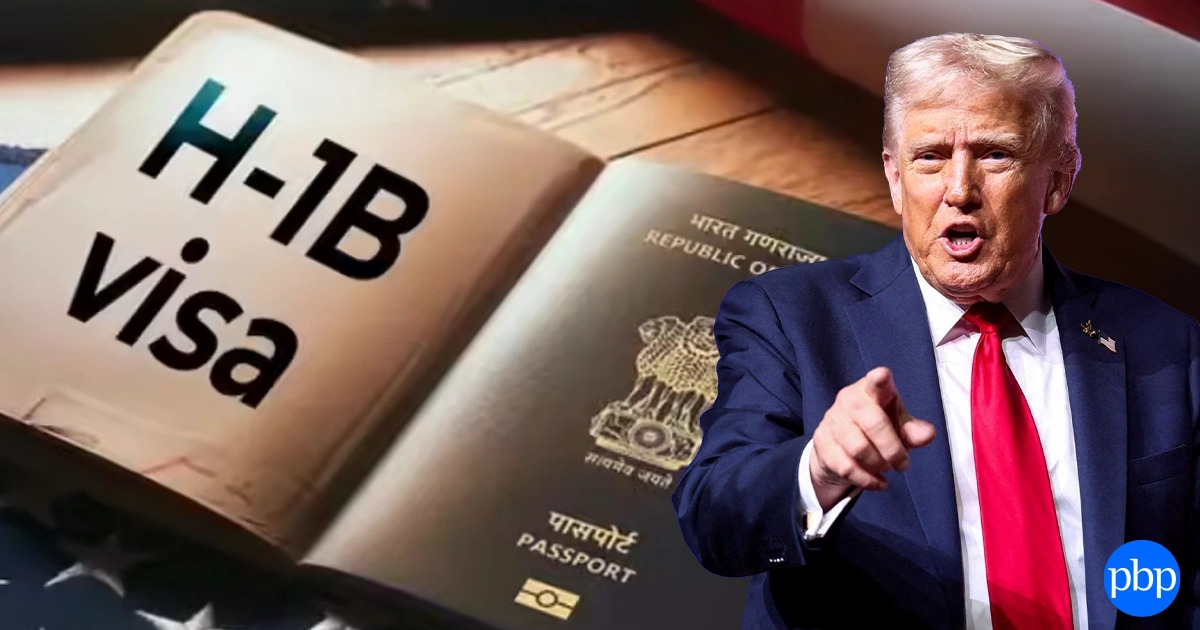On September 19, 2025, U.S. President Donald Trump signed an executive proclamation stating that a one-time fee of USD 100,000 will be applicable whenever an employer applies for a new H-1B visa for a worker. Most importantly, this new fee is not applicable to H-1B Visa holders (i.e., those whose visas were granted before September 21, 2025), or to renewals of existing visas.
The decision taken by President Donald Trump is a major disruption, especially for India, which dominates the H-1B landscape. For India, the relationship with the US is more than just a business; it's about tech jobs, diplomatic ties, and the global mobility of skilled talent. The full impact will depend heavily on the implementation details, possible exemptions, client pressures, and whether legal and political pushback force revisions. We all know that the Indian IT/tech sector is among the highest applicants for the H-1B Visa. Many Indian companies deploy engineers, developers, and consultants to U.S sites.
Immediate Market and Business Reaction
After the hefty fees imposed on H-1 B visas, Indian IT stocks fell sharply. For example, the Nifty IT index dropped ~3% as markets reacted to the possible disruption.
- Leading IT firms such as Infosys, Wipro, and HCL saw noticeable declines.
- The Indian government raised concerns about the “humanitarian impact,” particularly on families, and the External Affairs Ministry discussed it openly.
- Industry body NASSCOM also warned that the move could disrupt the global operations of Indian tech companies.
Strategic Implications for India’s Talent Ecosystem
Apart from disruption, the H-1B visa fee increase also creates an opportunity for India’s domestic innovation landscape. Policy also works as a “reverse brain drain”. Now, due to high fees, many skilled professionals choose to continue their careers within India rather than going abroad. The increase in cost makes it economically attractive for companies to expand their operations in India rather than sponsoring expensive visas.
Long-term Consequences for Innovation
The U.S. visa fee hike is not just a rule change; it shows a shift in how talent moves across countries. After this fee imposition, American firms may struggle more to hire specialised professionals in the fast-growing tech sector, where skilled workers are already scarce.
For India’s IT industry, this opens doors to working on more high-value projects as global companies seek affordable alternatives to costly U.S. hiring. This move, in fact, boosts India’s edge in the technology services market. On a larger scale, the change could influence global immigration trends, with other countries potentially using America’s tougher stance to attract skilled talent through more welcoming policies.
Also Read: PhonePe Launches Firecracker Insurance
Bottom Line
The H-1B visa fee hike represents a change in India-US relations and talent mobility. But its impact creates hardship for thousands of professionals and families. If we consider the long-term consequences, this decision may ultimately favor India’s strategic interests. The real challenge is whether India will be able to build an ecosystem strong enough to retain its talent and attract professionals diverted by America’s restrictive policies. Such a shift could significantly reshape the global tech landscape, with changes in immigration rules and policy influencing where innovation occurs.









